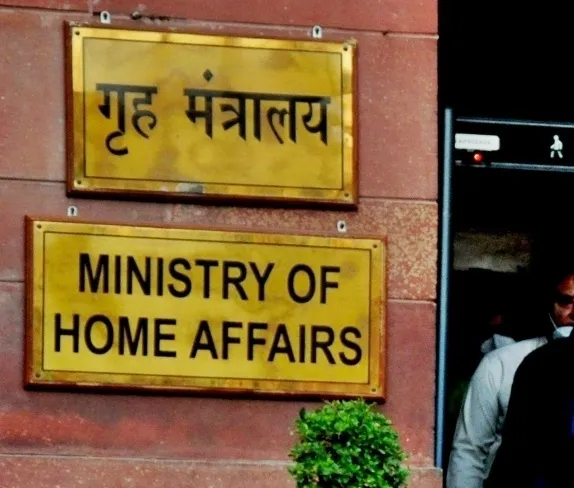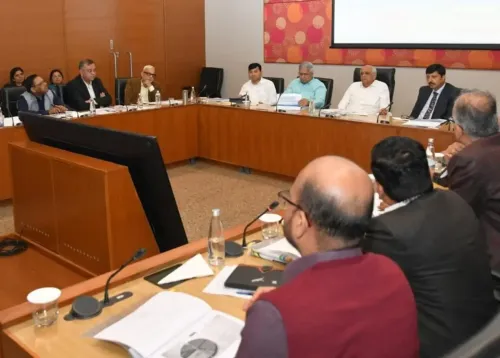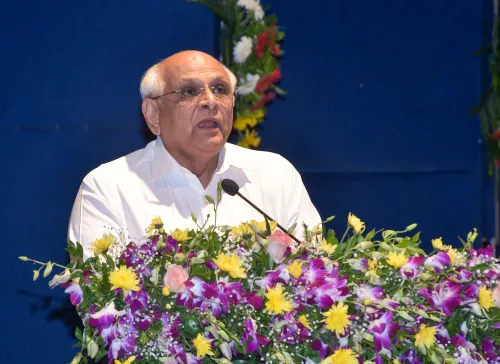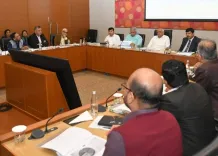What Support Are Five Organisations Offering to MHA's Efforts in Manipur?

Synopsis
Key Takeaways
- Five organisations support free movement across Manipur.
- Demand for action against groups obstructing movement.
- Resumption of bus services led to significant unrest.
- Call for a National Register of Citizens (NRC) exercise.
- Criticism of the term 'Kuki' as a colonial concept.
Imphal, May 4 (NationPress) Five organisations representing the Meitei and Thadou tribal communities in Manipur have pledged their support for the Ministry of Home Affairs' initiatives aimed at facilitating the unimpeded movement of all communities throughout the state, including the National Highways across both the valley and hills.
The five groups, which include the Meitei Heritage Society and Thadou Inpi Manipur, have also called for decisive action against any groups that impede the free movement of communities, asserting that this right is guaranteed by the Constitution.
On March 8, the Manipur government resumed bus services along four routes that connect five districts: Imphal, Senapati, Kangpokpi, Bishnupur, and Churachandpur. Buses operated by the Manipur State Transport Corporation (MSTC) were escorted by a large contingent of Central Armed Police Force (CAPF) personnel.
Despite the presence of CAPF, tribal activists attacked buses at various locations, particularly in the Kangpokpi district, resulting in significant unrest.
During the clashes on March 8, at least 43 individuals, including 27 security personnel, sustained injuries, and a protester named Lalgouthang Singsit lost his life amidst the violence triggered by Kuki-Zo tribal organisations protesting the resumption of bus services aimed at easing public hardship and restoring normalcy in the region.
The organisations released a joint statement demanding the initiation of a National Register of Citizens (NRC) exercise similar to that in Assam, to identify 'illegal immigrants' through an updated procedure.
“We have reaffirmed our commitment to protect the integrity, unity, and interests of Manipur as a multicultural state. All parties acknowledged the substantial roles and contributions of the Thadou community in safeguarding the collective interests of the people of Manipur and the state's integrity,” the statement mentioned.
Furthermore, the statement indicated a joint resolution to appeal to the relevant authorities for the removal of the 'unconstitutional' and vague classification 'Any Kuki Tribes (AKT)' from Manipur's Scheduled Tribes list.
This ambiguous designation is reportedly exploited by illegal immigrants to gain unwarranted Scheduled Tribe (ST) status, promoting a dangerous ideology of 'Kuki Supremacism', which threatens communal harmony and poses direct risks to national security, according to the statement.
The organisations contended that AKT was improperly included in the ST list of Manipur in 2003 for political motives, facilitating the influx and legitimization of illegal immigrants.
“The term 'Kuki' is not an ethnic or cultural identity, but a flawed colonial construct, later manipulated by power-seeking activists and vested interests with separatist and political agendas to dominate local indigenous communities and sever ties with Manipur. No members of the 29 originally recognized tribes of Manipur identify as Kuki or AKT. Thus, the term 'Kuki' should be eliminated from all academic, research, and official contexts,” the statement emphasized.
The statement concluded that to safeguard the authentic identities of Manipur's indigenous peoples, it is crucial to exclusively use the names of recognized STs listed under Article 342 of the Constitution of India, each possessing its distinct and independent ethnic identity, rather than any blanket, colonial, or imposed labels.










